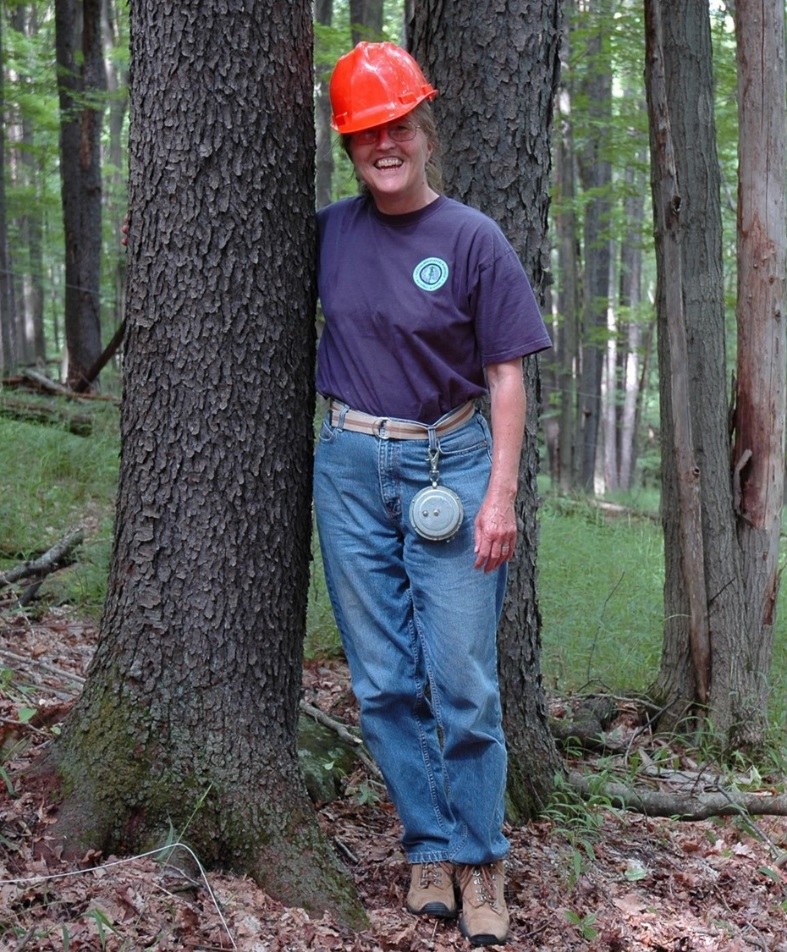Research Forester Emerita, US Forest Service Northern Research Station

Susan Stout
Susan Stout's first interest was in international forestry, which arose after she read that families in third world countries were spending a full-time person's effort just to get wood for cooking and heating. She was fascinated with the idea that forests could provide for those basic needs and still continue to provide lots of services to humans and other life. When serendipity placed her in northwestern Pennsylvania, assigned as a master's student to develop ways to measure crowding in the complex, species-rich forests here, Susan fell in love with these forests. Almost immediately, she began to see the ways that her original interest applied almost anywhere there were managed forests: with the best science, careful application, and plenty of humility, humans can work with forests to produce beautiful wood products, wildlife, wildflower, and fungal habitat, all while the forests continue to clean our air and water. It also became increasingly apparent that forests are changed by forces operating at very large scales, like deer browsing, air pollution, and invasive plants and insects. Silviculture is the name of Susan's formal scientific discipline, and she would describe it as the tool kit that humans use to work with forest systems. Objectives of silviculture include producing all the benefits already mentioned, as well as responding to some of those large-scale forces, sustaining or restoring diversity and complexity to natural forests, and achieving goals that may range from creating specific kinds of wildlife habitat through ensuring that new generations of trees have the conditions they need to establish and grow to produce beautiful wood products. She had the remarkable good fortune of working in the forestry community in Pennsylvania, where collaboration and cooperation are high, and although she retired in January 2018, Susan remains engaged with the challenges of sustaining and restoring these forests, and the ways that tools of silviculture can help
James C. Finley Center for Private Forests
Address
416 Forest Resources BuildingUniversity Park, PA 16802
- Email PrivateForests@psu.edu
- Office 814-863-0401
- Fax 814-865-6275
James C. Finley Center for Private Forests
Address
416 Forest Resources BuildingUniversity Park, PA 16802
- Email PrivateForests@psu.edu
- Office 814-863-0401
- Fax 814-865-6275

